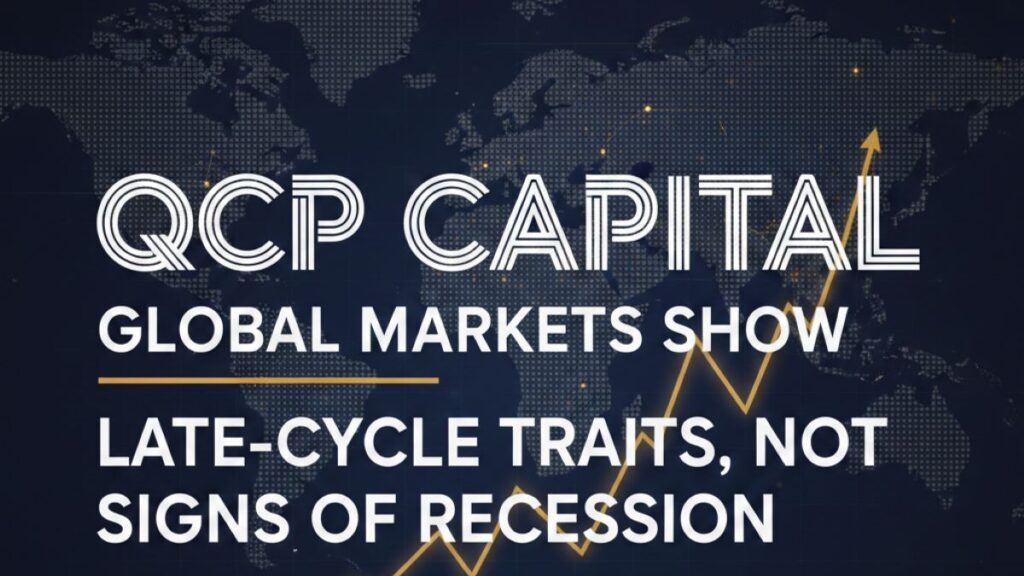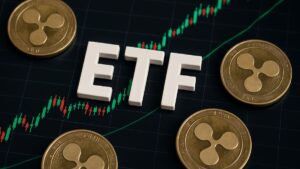TL;DR:
- QCP Capital finds global markets displaying late-cycle traits rather than recessionary conditions, with growth slowing but no widespread contraction.
- Stock indices, bond yields, and corporate earnings reflect a mature business cycle, while certain sectors show resilience despite broader caution.
- Analysts advise selective sector exposure, risk management, and tactical asset allocation to navigate volatility, emphasizing that late-cycle indicators do not equate to a systemic economic collapse.
Global markets are exhibiting late-cycle characteristics rather than entering a full-blown recession, according to insights from QCP Capital. Analysts emphasize that while economic indicators show slowing growth, signs of contraction remain limited, suggesting investors should differentiate between cyclical fluctuations and structural downturns.
Markets Reflect Late-Cycle Dynamics
QCP Capital highlights that stock indices, bond yields, and corporate earnings trends indicate a mature phase of the business cycle. Markets are experiencing decelerating growth, but there is no widespread evidence of demand collapse. Analysts note that certain sectors, such as technology and discretionary consumer goods, are showing resilience despite broader caution, reflecting uneven economic momentum rather than systemic stress.

In addition, global credit conditions remain accommodative, with central banks maintaining moderate policy stances despite prior tightening cycles. QCP Capital observes that while inflation has moderated in some regions, monetary policy has yet to signal aggressive easing. The combination of slowing growth and stable liquidity points to a late-cycle environment where strategic positioning is critical.
Other indicators support the late-cycle thesis. Commodity prices and corporate profit margins show fluctuations consistent with cyclical peaks rather than a recessionary collapse. Analysts also note that market volatility has spiked intermittently, reflecting investor sensitivity to macroeconomic news rather than structural economic deterioration. This behavior underscores the importance of distinguishing normal late-cycle corrections from bear-market conditions.
QCP Capital advises investors to focus on selective sector exposure and risk management, emphasizing companies with strong balance sheets and adaptable business models. Tactical asset allocation may outperform broad-market strategies in an environment characterized by uneven growth and persistent market swings. Analysts also highlight opportunities in global fixed-income and alternative assets as a hedge against cyclical shocks.
The insights from QCP Capital stress that late-cycle signals are not synonymous with recession. Investors are encouraged to remain vigilant, monitor macro trends, and position portfolios to navigate volatility while avoiding overreactions to short-term market noise.










